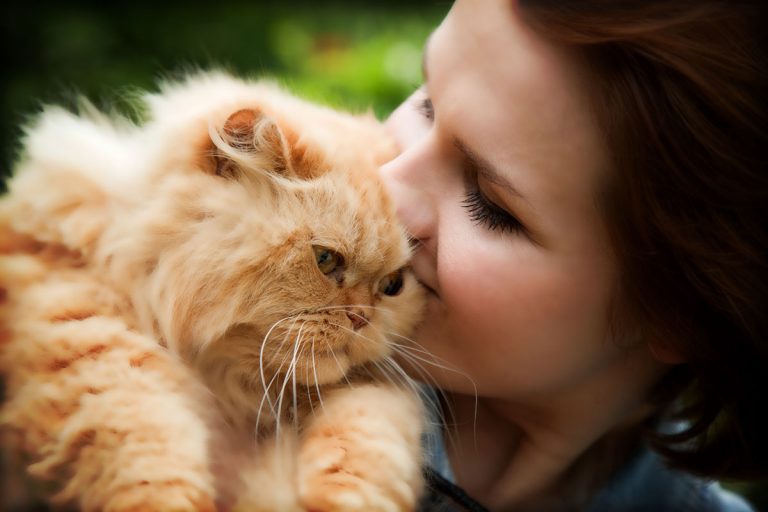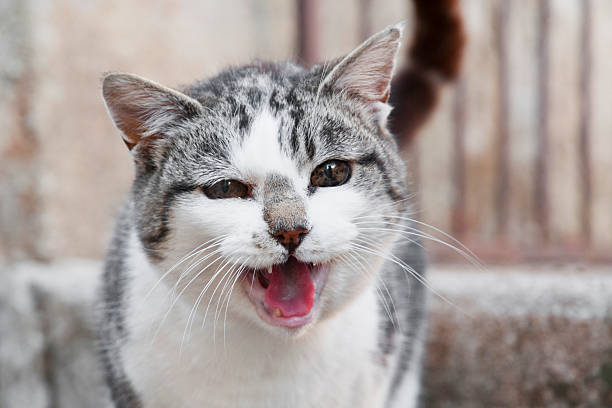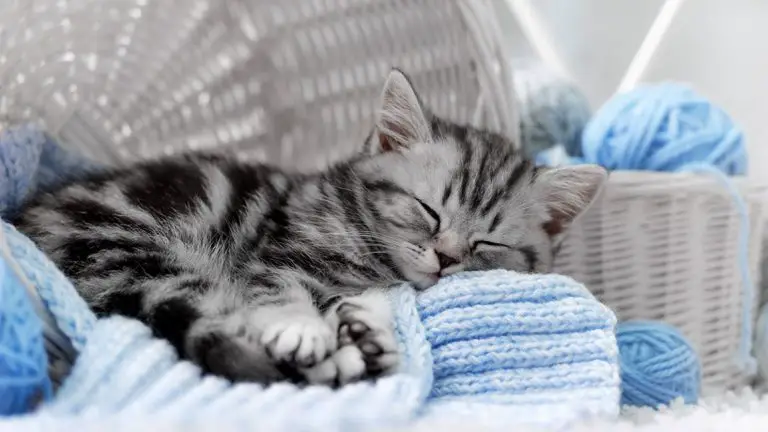Unprovoked Aggression in Cats | Causes, Signs & Symptoms of Cat Aggression
Unprovoked Aggression in Cats | Causes, Signs & Symptoms of Cat Aggression
Unprovoked Aggression in Cats
Cats are very, very territorial animals, and they will often attack without provocation. A cat that is not getting enough attention or stimulation may lash out at you. Cats tend to be more aggressive when they are young, but an adult cat can behave aggressively.
What Causes Sudden & Unprovoked Aggression in Cats?
Here are some reasons for Unprovoked Aggression in Cats:
Cats Are Territorial
Cats are territorial creatures and will fight with other cats, dogs, and other animals that encroach on their territory. The cat may claim its territory by spraying on the furniture or carpet. She will also lash out at your hand when you try to pet her because you are invading her territory.
Cats are territorial creatures and will fight with other cats, dogs, and other animals that encroach on their territory. The cat may claim its territory by spraying on the furniture or carpet. She will also lash out at your hand when you try to pet her because you are invading her territory.
Cats Feel Threatened
Cats are territorial animals, but they are not aggressive by nature. When cats feel threatened in their territory, they will lash out and attack the other animal. They do not attack for no reason.
Cats are territorial animals, but they are not aggressive by nature. When cats feel threatened in their territory, they will lash out and attack the other animal. They do not attack for no reason.
Cats Are Cats
Many people assume that an aggressive cat is somehow a different species or breed than one that is not. But generally, the two have no physical differences: all cats have similar breeds.
The only difference is in how much the cat trusts you and reacts to your interactions with her. Some cats are very aggressive, and some are not, but they cannot be differentiated according to species.
Many people assume that an aggressive cat is somehow a different species or breed than one that is not. But generally, there are no physical differences between the two: all cats have similar breeds.
The only difference is in how much the cat trusts you and reacts to your interactions with her. Some cats are very aggressive, and some are not, but they cannot be differentiated according to species.
Stress and Aggression
Cats can become aggressive when they feel stressed, for example, when they are in the vet’s office or when you move into a new home. To stop the cat from becoming aggressive, take her to the vet or socialize her to get used to your new environment.
Cats can become aggressive when they feel stressed, for example, when they are in the vet’s office or when you move into a new home. To stop the cat from becoming aggressive, take her to the vet or socialize her to get used to your new environment.
Symptoms of Cat Aggression
Aggression in cats can be difficult to detect. Some may display aggressive behavior based on their personality, while others may do so if they are ill or frightened.
Here are several signs that will show you that your cat is agitated & exhibiting aggressive behavior. The following are the most obvious signs:
- Biting and scratching at animals or humans. You may notice that your cat is biting at other animals or people. If this is the case, keep him inside until his behavioral problems have been corrected. Always ensure the safety of others in the household before punishing him by keeping him in his cage. This will only reinforce his bad behavior.
- Protective or territorial behavior: Your cat may start to display protective and territorial behavior. This means that your cat wants to be the only one in the house, as these are dominant cats’ behaviors. He may try to attack other pets if they feel threatened or aggressively towards them. For example, a male cat will start fighting with a Munchkin (a female cat that has been neutered). If the cat seems possessive, you may have a territorial cat. If this is the case, call a vet to solve the problem.
- More complex aggression: This is when your cat’s aggressive behavior starts to include other cats at his home. He may start to show dominance over them; for example, he may repeatedly attack them or try to bite them.
These behaviors are often associated with domestic cats kept inside their homes for a long time and lack proper stimulation or an opportunity to interact with other pets or people. If your cat is constantly attacking other cats in your home, it may be a territorial issue that needs to be solved.
Also, try to avoid the pet store or any other place where cats are separated from their pack. If the aggression occurs at unfamiliar places such as in your yard or nearby farm, call a vet immediately for advice.
Why Do Cats Attack?
Cats do not attack for no reason. There is usually a reason why your cat has lashed out at you. She may have recently become sick and suffered from depression or been subjected to abuse by another animal in the household.
Aggression
Cats are not inherently aggressive, but things can change. When cats become stressed, they can be more aggressive. Cats are often aggressive when fighting for a mate, territory, or food. They may suddenly become aggressive when they feel threatened by your presence.
Behavioral Problems in Cats
Studies have shown that cats who were abused as kittens tend to be vicious and fight with humans. This is also because cats are territorial animals and want their owners as close to them as possible.
Cats and Other Animals Fighting
Cats fight with all kinds of animals, even other cats. They will often lash out at dogs, mice, or squirrels when they feel threatened.
If your dog gets too close to your cat, she may try to bite him. Your dog may join the fray as well. It is a good idea to leash your dog or keep it under control when outside his cage or pen.
Innate Behavior in Cats
Cats tend to be antisocial when they are young. They are not used to people but learn to interact with humans as they grow older. If your cat has displayed aggressive behaviors, this is what you can do to try and correct it:
The Human-Cat Bond
Cats are social creatures and must be reassured of other animals around them. They feel more secure when another animal is present. If not, they may lash out and attempt to fight the other animal.
Why Do Cats Rip Out Hair?
Causes of Hair Pulling or Ripping Out in Cats: Many people assume that a cat who is pulling out his fur is doing so because he is aggravated or anxious. This is not true, but it can be the result of your cat’s behavior.
When stressed or frightened, a cat rubs against objects like clothing, furniture, or walls, and she may bite herself. This is when she feels the most pain and will begin to pull out her fur.
How to Stop Aggression in Cats
Many people assume that a cat must be ferocious and dangerous because it is aggressive. But this is not true. Aggressive cats are usually simply distressed or frightened. Some cats lash out because they are sick and feel pain when trying to move around.
Behavioral medications that are available on the market can also help you train your cat to stop biting or attacking you. However, if this is not possible, behavioral medications are essential for your cat’s safety. For example, Imodium will help reduce the frequency of his aggressive behavior.
The drug works by preventing his stomach from contracting and making him feel less hungry. It is necessary to keep him away from food and water until he has been treated with this medication. Pets have a high metabolism and need to eat significantly less than humans do.
The medication will last for 5 to 6 days. You can buy these drugs without a prescription from your vet. It is important to prevent the development of common complications that may occur when dealing with your cat’s aggression.
Factors that Influence Unprovoked Aggression in Cats
The most common factors that contribute to an aggressive cat are:
Age of the cat
When cats are full-grown, they generally settle into their personalities (with some exceptions). They’re less likely to be anxious or disturbed about things as they get older. Domestic shorthaired and longhaired cats tend to mellow with age.
Some breeds get more aggressive as they grow up, but not usually for any reason other than that’s just the way they are.
If a cat is aggressive from birth, this trait is probably etched in stone.
The environment of the Cat
If your cat lives in a small space with lots of other nervous cats or is given too little attention, you may create an aggressive personality in him.
Some cats will strengthen their aggression once they’re mature because they get bored with it and start to feel like they have to wear it as armor. This is one form of what’s known as “learned behavior” or hyper-aggression.
Previous incidence
An aggressive cat is sometimes the result of a prior traumatic accident with another animal. Cats are susceptible to what they perceive as threatening behavior or actions and may develop a paranoia that is damaging to the human-cat bond.
On the other hand, if your cat is territorial or defensive by nature and “attacks” another cat – this is not really aggression. It’s instinctual territorial protection. These cats are less responsive to training than those that are just autistic/not friendly for no reason.
Breed or Bloodline of the Cat
Some breeds are known as being more aggressive than others. A cat’s ancestry is more a factor of his heritage than how he was raised. The longer his lineage has been bred to fight, and the more aggressive his ancestors were, the more likely your cat will be aggressive.
Some self-defense and/or attack breeds have been engineered for these traits, and you may find that your pet falls into this category.
Spay/Neuter Status of the Cat
Not all cats are created equal. Spaying or neutering your cat can make a great difference to his behavior, especially if he’s gone feral or has been a troublemaker. If your cat is aggressive because of his lack of hormones, it’s less likely that he will get along with other cats and people.
How you interact with your cat
most people aren’t aware that being hostile towards a cat can make it more aggressive and territorial. He will likely be if you’re not calm and confident around your cat.
Having a good relationship with your cat is essential to his health and happiness. If you’re put off by his behaviors, he’s more likely to develop aggression as well.
Cat Food
Some cats are food-motivated, which means they become more territorial as they get older. They will guard the kitchen and do anything to keep their human away from the food. The good news is that if you’re calm, confident, and assertive, he will learn to trust you even when he’s getting aggressive.
Interactions with other pets/people
It can be natural for a cat to fight with other pets or people when they’re around. If your cat is dealing with an intruder, he may think that biting or scratching them is a matter of survival. It’s not. The fact that your cat is a free-roaming animal doesn’t mean that he won’t be territorial or defensive.
They will become more defensive as they get older because they get bored with it. Some cats will strengthen their aggression once they’ve reached adulthood and start to feel like they “have to wear it as armor.”
Lack of Training on the Cat
Many people train their cats on a leash, especially if there are two or more cats. They do this to give their cats enough space to be themselves while having more control over them. And, while this is fine for some cats, others don’t like the idea of using a leash and may become more aggressive because of it.
Evolutionary Reasons
Some experts say aggressive behavior is hard-wired into the cat’s genetics (domestic shorthaired and longhaired genes). It’s genetically coded to hunt and kill prey, which translates into territorial defense.
Health of the Cat
When a cat is suffering from health issues, his aggression is often worse. The cat’s brain isn’t able to process information, which can make him nervous or anxious around strangers. If your cat has health problems, consult your veterinarian for advice.
Related:
The Cat Breeds That Are Least Aggressive
If you do want to know what breed of cat is least aggressive, the answer will always come down to behavior. In other words, it depends on how your cat behaves around people and other pets. If he’s friendly and gets along with everyone, the breed isn’t as important as the degree of his social skills.
Some Cat Breeds That Are Least Aggressive
Manx – these cats have a tiny face and are naturally friendly (and short-haired!). They make great lap cats for children and will not scratch the furniture.
Maine Coon – this breed has been around for centuries, has a gentle disposition, and makes an adorable companion. Even when the cat is older, he tends to be friendly and calm. However, a cat named Trouble likes to ambush mice that live under his owner’s bed.
Norwegian Forest – they are known for their sweet temperaments and mellow natures. They are intelligent but don’t usually display aggressiveness due to their peaceful nature.
They can be a little standoffish with new people, which means you have to be patient when introducing them to other animals and humans.
Conclusion
Owners of aggressive cats get frustrated because they cannot identify the causes behind his actions. Cats are supposed to be happy animals.
They should not struggle with health problems or aggressive behavior, especially towards the people they love the most.
Understand that there are many reasons why your cat is showing signs of aggression. These can range anywhere from emotional and behavioral to health issues. If you feel that your cat is showing signs of aggression towards you, consult with your vet. He will help you decide on a solution that will benefit both you and your cat.
Cat aggression is a very serious issue. You must take it seriously. It is not something to be taken lightly if you are dealing with an aggressive cat. If your cat is showing signs of aggression, it is your responsibility to solve the problem.
Seek professional help from your vet and take measures to ensure that your cat’s aggressive behavior does not affect the rest of your family members.



